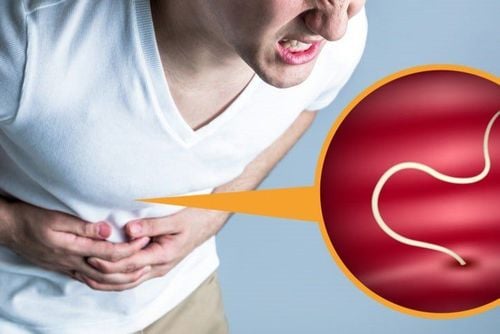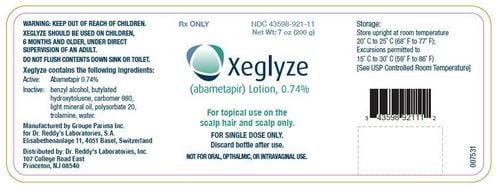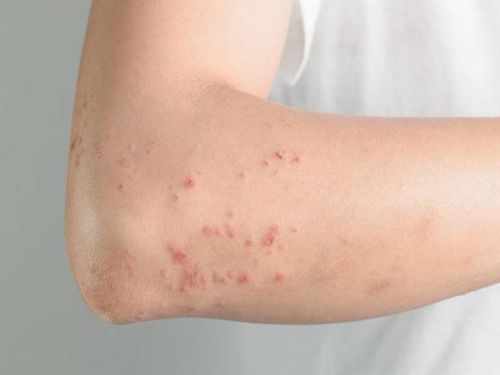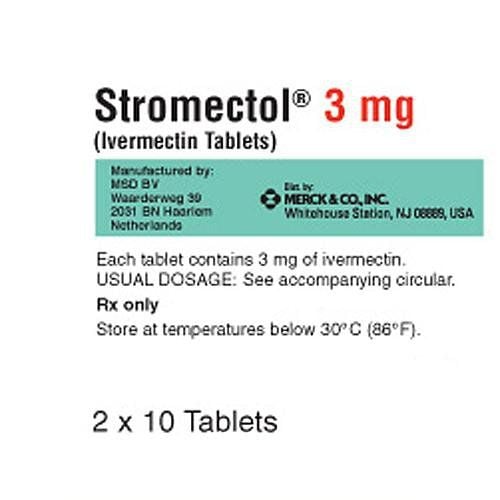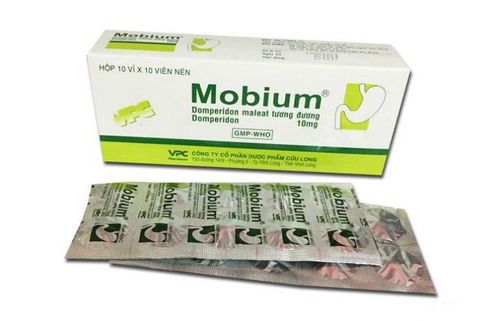This is an automatically translated article.
The article was professionally consulted with Specialist Doctor I Tran Quoc Vinh - Emergency Doctor - Department of Resuscitation - Emergency - Vinmec Nha Trang International General Hospital.Gastrointestinal worm infections are common in countries with hot and humid tropical climates like Vietnam. Many cases of worm infection can cause dangerous complications such as: Severe anemia caused by hookworms, worms in the bile ducts, intestinal obstruction caused by worms, encephalitis, meningitis,... Most worms do not cause protective immunity. protection, worm diseases can still be re-infected after recovery.
1. Roundworm disease
Roundworm usually parasitizes in the small intestine of humans, especially children, with clinical symptoms often without specific symptoms.1.1 Symptoms of Ascariasis Live worms are excreted in the feces or through the mouth, nose Loeffler syndrome in the lungs: Fever, cough, severe chest pain, eosinophilia. X-ray image shows many infiltrative nodules scattered in both lungs. These symptoms may go away after 6-7 days. Severe cases of ascariasis can cause intestinal obstruction, biliary obstruction or appendicitis caused by worms. Because there are no specific clinical manifestations, ascariasis is only diagnosed when worm eggs are found in the stool or adult worms are found in the stool, worms pass through the nose and mouth.
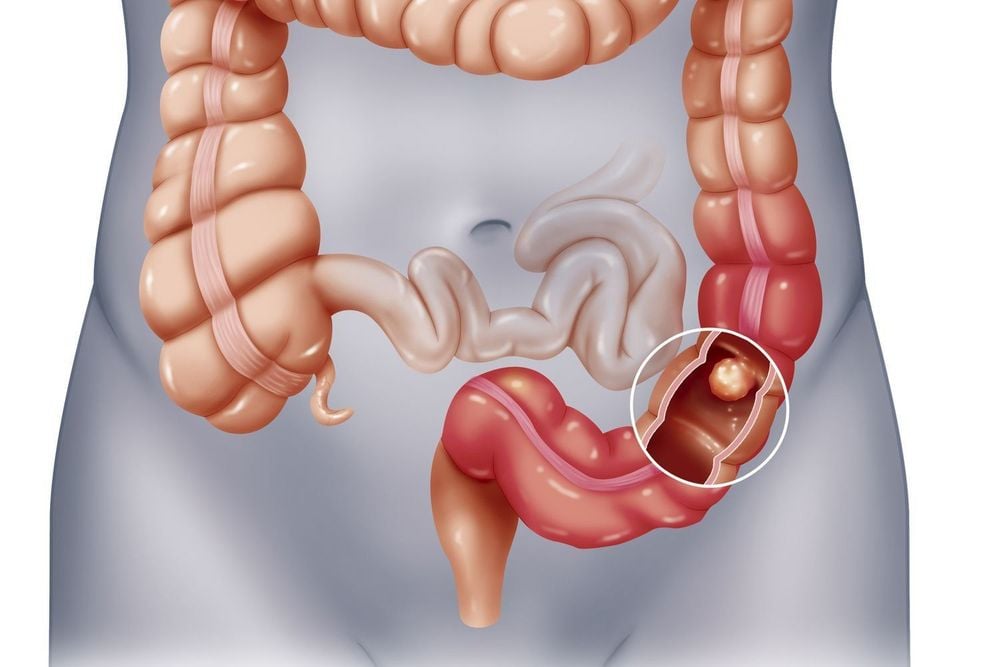
1.3 Prevention of roundworm disease To prevent roundworm disease, people need to take measures the following methods:
Wash hands, cook and peel raw fruits and vegetables before eating Deworming every 6 months Do not use fresh manure to fertilize crops Do not defecate indiscriminately Wash hands with water and soap before eating and after using the toilet.
2. Hookworm disease
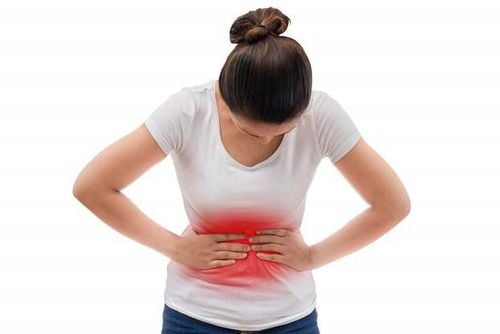
2.1 Symptoms of hookworm disease People with hookworm disease often have no specific clinical symptoms, but mainly anemia symptoms such as:
Pale skin Epigastric pain (depending on the degree of worm infection) Examination Blood tests showed hypochromic anemia with red blood cells below normal, total protein decreased, and eosinophils increased by 5-12%. Patients may experience pain without a fixed time, pain increases with hunger and loss of appetite, indigestion Hookworm larvae penetrate the skin can also cause local dermatitis with symptoms of itching, red spots and often gone after 1-2 days. 2.2 The transmission capacity of hookworms The decisive factors for the infection of hookworms are the hot and humid climate, outdated living habits, and inadequate personal and environmental hygiene. The main reservoir of hookworm is humans when hookworm eggs are swallowed and their life can be extended to 5-6 years if left untreated.
2.3 Prevention of hookworm disease Hookworm larvae, when infected, are able to grow and survive in moist soil environments, especially sandy and loamy soils, but cannot live in clay and manure, so it is important to preserve them. Hygiene is the primary prevention measure. In addition, the following measures should also be taken:
Do not defecate in places other than latrines or toilets Do not use human feces or untreated sewage or waste from the cesspool to fertilizers in agriculture. Do not go barefoot in areas with suspected worm infestations Deworming pets for dogs or cats
3. Pinworm disease
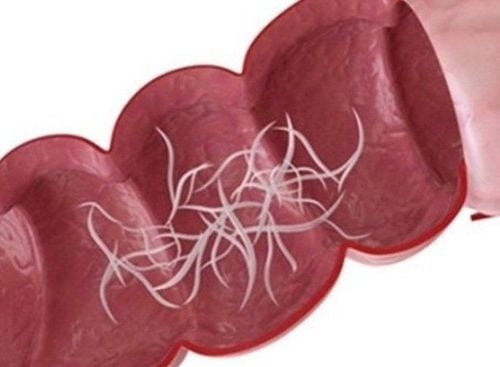
3.1 Symptoms of Pinworms Children with pinworms can have symptoms such as:
Itching and scratching anus at night, fussing at night, visual inspection can see pinworms at the anal margin. due to female pinworms laying eggs at the edge of the anus at night Solid stools can be seen pinworms attached to the edges of the stools Worms get into the vagina causing infection, menstrual disorders Pinworms entering the appendix can also cause appendicitis . Definitive diagnosis of pinworm disease is usually based on finding worm eggs through tests or finding female worms at the anal margin.
3.2 Transmissibility of Pinworms The most common transmission route of pinworms is through household items such as: Clothes, toys, pillows, mosquito nets, nets. Because pinworms usually lay eggs only at night in the host's anal folds, eggs are usually not seen in the feces. Therefore, people infected with worms are also more susceptible to self-infection if they scratch the anus with worm eggs and then hold food, drink or suck their fingers. Pinworm life is about 1-2 months.
3.3 Prevention of pinworm disease To prevent pinworms, especially in children, it is necessary to take the following measures:
Raise awareness of hygiene to protect the environment from being contaminated with feces, especially floors, bedding. and children's clothes Practice eating cooked, drinking boiled and cooled down Good personal hygiene such as cutting nails short, washing hands with soapy water before eating and after using the toilet Do not let children wear crotchless pants, wash after daily routine for children with soap in the morning High-risk subjects need periodic deworming, especially for children aged 2-12, deworming once every 6 months.
Please dial HOTLINE for more information or register for an appointment HERE. Download MyVinmec app to make appointments faster and to manage your bookings easily.





